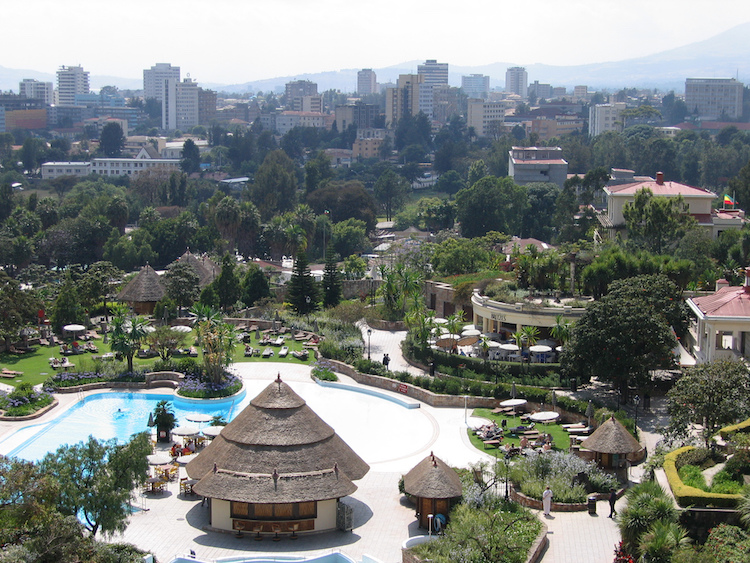By Ronald Joshua
GENEVA (IDN) – The United Nations human rights chief has voiced concern over serious human rights violations in the Oromia and Amhara regions of Ethiopia early August, and urged the Government to ensure access for independent observers to affected areas.
At least 97 people were killed and hundreds more injured when Ethiopian security forces fired live bullets at peaceful protesters across Oromia region and in parts of Amhara over the weekend of August 6-8, according to credible sources who spoke to Amnesty International.
Thousands of protesters turned out in Oromia and Amhara calling for political reform, justice and the rule of law. “The worst bloodshed – which may amount to extrajudicial killings – took place in the northern city of Bahir Dar where at least 30 people were killed in one day,” Amnesty reported.
“The security forces’ response was heavy-handed, but unsurprising. Ethiopian forces have systematically used excessive force in their mistaken attempts to silence dissenting voices,” said Michelle Kagari, Amnesty International’s Deputy Regional Director for East Africa, the Horn and the Great Lakes.
Kagari said: “These crimes must be promptly, impartially and effectively investigated and all those suspected of criminal responsibility must be brought to justice in fair trials before ordinary civilian courts without recourse to death penalty.”
According to information obtained by Amnesty International, police fired live bullets at protesters in Amhara region’s capital Bahir Dar on August 7, killing at least 30. Live fire was also used in Gondar on August 6, claiming at least seven lives.
No deaths were reported from the Addis Ababa protests, but photos and videos seen by Amnesty International show police beating protesters with batons at Meskel Square, the capital’s main public space.
In Oromia and Amhara, hundreds were reportedly arrested and are being held at unofficial detention centres, including police and military training bases.
Against the backdrop of such alarming reports on human rights abuses during public protests, the UN High Commissioner for Human Rights Zeid Ra’ad Al Hussein, appealed to the Ethiopian authorities for allowing human rights experts to access to the conflict zones and evaluate the situation.
“We welcome the decision to launch an independent investigation, and we urge the Government to ensure that the investigation has a mandate to cover allegations of human rights violations since the unrest in Oromia began in November 2015,” Ravina Shamdasani, a spokesperson for the Office of the UN High Commissioner for Human Rights (OHCHR), told reporters in Geneva.
She asked the government to ensure that the investigation is “indeed independent, transparent, thorough and effective, with a view to establishing whether the use of excessive force occurred and with a view to bringing to justice the perpetrators of any human rights violations”.
The UN rights office is ready to assist in ensuring that the investigation abides by international human rights standards. She reiterated the need for access to the affected areas, arguing: “… The situation on the ground makes it very challenging for independent civil society actors to operate, particularly given the tense situation in parts of the Oromia and Amhara regions, where a large security presence has reportedly been deployed, and there are reports of ongoing arbitrary arrests, intimidation and harassment of people in the regions.”
OHCHR spokesperson Shamdasani added: “We call on the Government to ensure that the rights to freedom of peaceful assembly and expression are protected and that those detained for exercising these rights are promptly released.”
She further urged the Government to ensure that the rights to freedom of peaceful assembly and expression are protected and that those detained for exercising these rights are promptly released. “Protests must be handled by security forces with full respect for international human rights laws and standards on the use of force.”
She also called on the Government to work towards opening up the political and democratic space. “This should include a comprehensive reform of the security sector, as well as legislative and institutional reforms,” said the OHCHR spokesperson.
The protests in Oromia are a continuation of peaceful demonstrations that began in November 2015 against a government masterplan to integrate parts of Oromia into the capital Addis Ababa. Deaths were reported in multiple towns in the region, including Ambo, Adama, Asassa, Aweday, Gimbi, Haromaya, Neqemte, Robe and Shashemene.
The protests in Amhara began on July 12, 2016 when security forces attempted to arrest Colonel Demeka Zewdu, one of the leaders of the Wolqait Identity and Self-Determination Committee, for alleged terrorism offences.
Wolqait is an administrative district in Tigray Region that was part of Amhara Region before the ruling Ethiopian People’s Revolutionary Democratic Front (EPRDF) came to power 1991. It has been agitating for reintegration into Amhara for the last 25 years.
The August protests come some four months before Ethiopia joins on January 1, 2017 as non-permanent member of the UN Security Council for two years. Security Council is the United Nations’ most powerful body, with “primary responsibility for the maintenance of international peace and security.” [IDN-InDepthNews – 22 August 2016]
Photo: View of the capital Addis Ababa from the Sheraton Hotel. Credit: Wikimedia Commons.
IDN is flagship of the International Press Syndicate.

